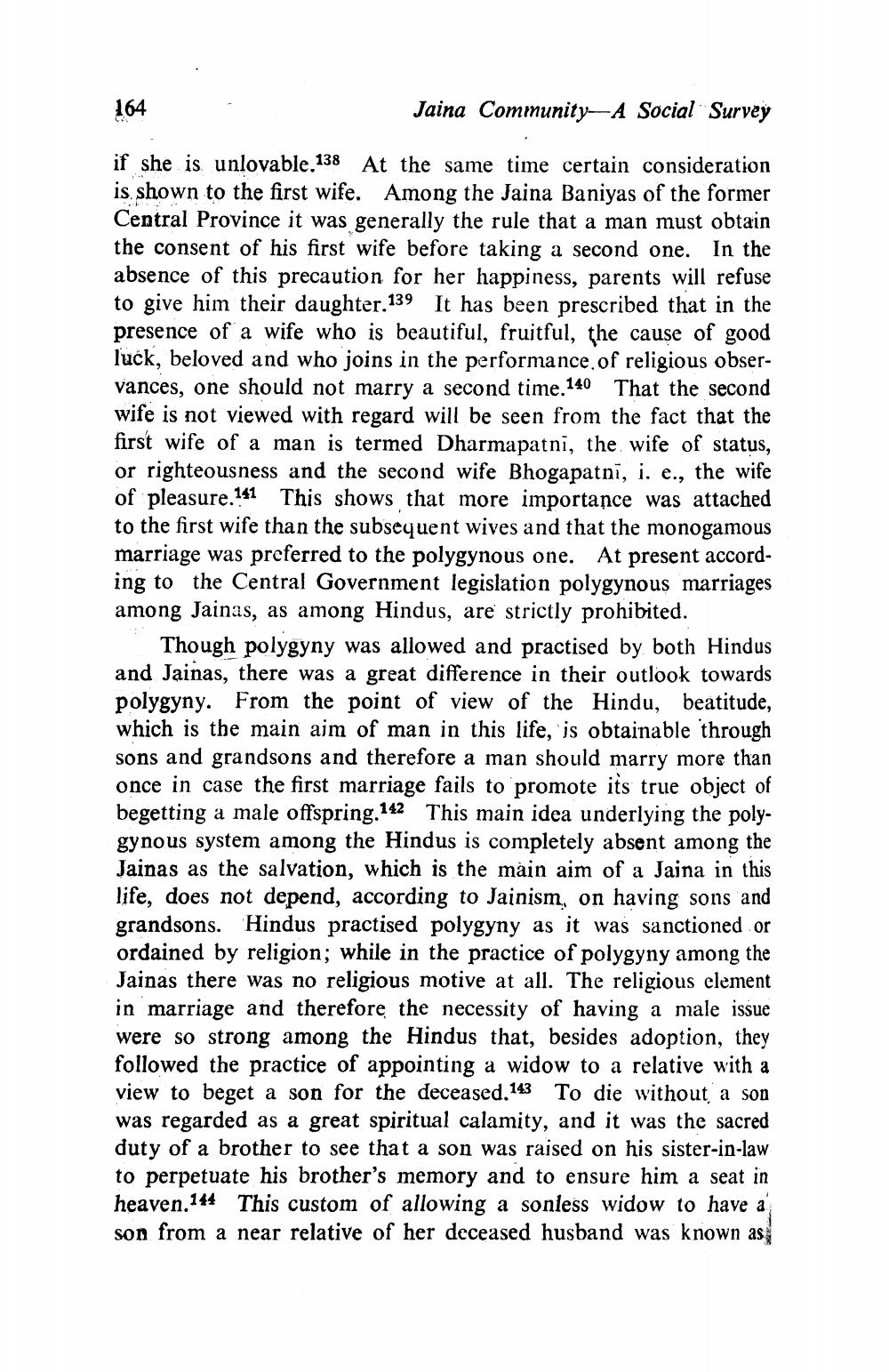________________
164
Jaina Community- A Social Survey
if she is unlovable.138 At the same time certain consideration is shown to the first wife. Among the Jaina Baniyas of the former Central Province it was generally the rule that a man must obtain the consent of his first wife before taking a second one. In the absence of this precaution for her happiness, parents will refuse to give him their daughter.139 It has been prescribed that in the presence of a wife who is beautiful, fruitful, the cause of good luck, beloved and who joins in the performance of religious observances, one should not marry a second time.140 That the second wife is not viewed with regard will be seen from the fact that the first wife of a man is termed Dharmapatnī, the wife of status, or righteousness and the second wife Bhogapatnī, i. e., the wife of pleasure.141 This shows that more importance was attached to the first wife than the subsequent wives and that the monogamous marriage was preferred to the polygynous one. At present according to the Central Government legislation polygynous marriages among Jainas, as among Hindus, are strictly prohibited.
Though polygyny was allowed and practised by both Hindus and Jainas, there was a great difference in their outlook towards polygyny. From the point of view of the Hindu, beatitude, which is the main aim of man in this life, is obtainable through sons and grandsons and therefore a man should marry more than once in case the first marriage fails to promote its true object of begetting a male offspring.142 This main idea underlying the polygynous system among the Hindus is completely absent among the Jainas as the salvation, which is the main aim of a Jaina in this life, does not depend, according to Jainism, on having sons and grandsons. Hindus practised polygyny as it was sanctioned or ordained by religion; while in the practice of polygyny among the Jainas there was no religious motive at all. The religious clement in marriage and therefore the necessity of having a male issue were so strong among the Hindus that, besides adoption, they followed the practice of appointing a widow to a relative with a view to beget a son for the deceased. 143 To die without a son was regarded as a great spiritual calamity, and it was the sacred duty of a brother to see that a son was raised on his sister-in-law to perpetuate his brother's memory and to ensure him a seat in heaven.144 This custom of allowing a sonless widow to have a son from a near relative of her deceased husband was known as




